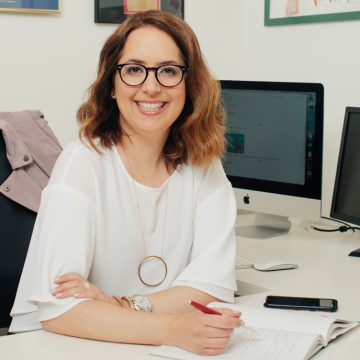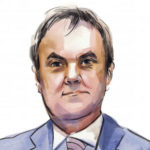I have to say, as this pandemic drags on, I’m getting tired of Isaac Newton. In every story I read about pandemic productivity, Newton is there. Yes, I know. In England in 1665, the guy invented calculus while in isolation during the bubonic plague. And he began to develop his theory of gravity, too, during that time. Of course he did.
Well, I’m no Isaac Newton. In my isolation, I learned some common lessons of the era: how to grow vegetables in my backyard (success!), how to work and parent simultaneously (less success!) and how to switch all my IRL meetings to Zoom (oh, wait, you’re frozen . . . can you hear me now?). There have been no amazing discoveries. And I’m alright with that. So long as I’m a good parent, my house is not in a state of total chaos and I continue to get this magazine out the door (well, a digital edition out the door), I think I’m doing a pretty kick-ass job all things considered.
I’ve been amazed, however, at what the legal community has achieved throughout this period of incredible challenge. Amid the chaos, fear and uncertainty that COVID-19 has wrought, a lot of lawyers have been incredibly productive. And their work doesn’t simply translate into more billable hours; it translates into a better justice system. In this issue, you’ll meet lawyers who have advocated for safer prisons, grappled with novel legal issues and increased access to justice using technology.
Our cover story delves into the early days of the lockdown at three Toronto law firms. Though you’ll hear about some of their struggles, I think you’ll be inspired by how each firm found creative ways to serve clients and maintain camaraderie at the virtual office.
Of course, the picture in the legal community isn’t all rosy. We have faced all sorts of setbacks. Salaries have been cut, jobs have been lost, work has slowed down. In an essay, lawyer Cameron Bryant addresses these setbacks. As he points out, this has been a time of real hardship.
The important thing I’ve learned about Isaac Newton — and what is not mentioned in a lot of the pep-talk-style stories — is that the idea of calculus didn’t simply dawn on him while he was waiting out the plague on a farm in the English countryside. He had already been working on his ideas before the plague hit, and he continued to do so once it was over. He simply carried on. And so, I guess I have more in common with Newton than I originally thought. Not because I was able to invent calculus. But because, in the face of a terrifying pandemic and the mental hardship of isolation, I, too, was able to carry on.

Melissa Kluger
Publisher & Editor
melissa@precedentmagazine.com
@melissakluger
Back to school
We are excited to announce that we’re taking oursister publication for Canadian law students in a new direction. PrecedentJD is now an online-only publication!
We are still committed to helping law students prepare for their careers by offering valuable resources and advice, and our new digital format will help us meet that mandate even better. Our revamped website features timely reporting and thoughtful think pieces that will help the next generation of legal talent prepare for the future. Visit PrecedentJD.com to get the latest stories and to sign up for the JD eNewsletter.
More from the Fall issue
This is a story from our Fall 2020 Issue.
Photo of Melissa Kluger by Ian Patterson







